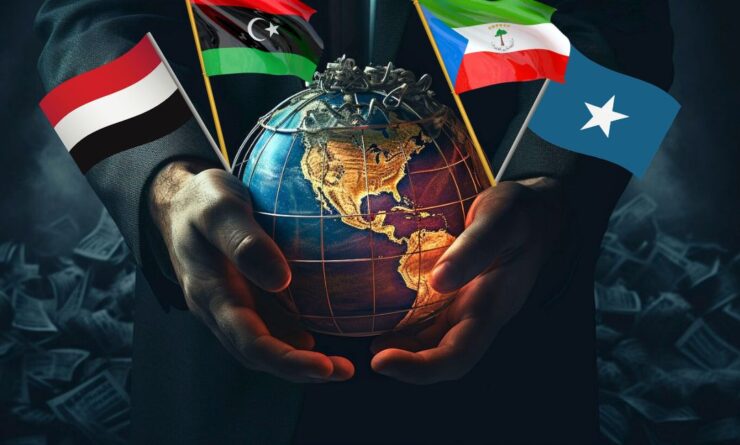It’s widely acknowledged that numerous governments worldwide don’t always prioritize their citizens’ well-being. Many officials succumb to the allure of misusing public resources for personal benefits, leading to high levels of corruption in certain nations.
The term “corruption” is frequently associated with countries experiencing civil disturbances, economic downturns, and lacking social welfare systems. This is because corruption directly challenges human rights principles.
Consequently, some of the world’s most picturesque nations are also among the most corrupt.
Practices like favoritism, bribery, and rigging procedures to secure government contracts are prevalent forms of corruption. While many highly corrupt nations are still developing, some advanced countries also grapple with this issue.
This article will provide a detailed overview of the world’s most corrupt countries, as indicated by the Transparency International Corruption Index.
What Leads to Corruption in a Nation?
Transparency International defines corruption as the misuse of entrusted power for private benefits.
The Corruption Perceptions Index (CPI) is a tool used to gauge this. It assigns scores between 0 and 100, amalgamating various indicators of corruption into a comprehensive global ranking. Factors contributing to these scores encompass civil unrest, inadequate security, governance issues, and fragile institutions.
It’s crucial to understand that rampant corruption can severely hamper a nation’s capacity to deliver essential services like health care, education, and law enforcement. Hence, it’s not uncommon to find a parallel between the world’s most perilous nations and those with high corruption levels.
The 25 Most Corrupt Nations Globally
25. Afghanistan
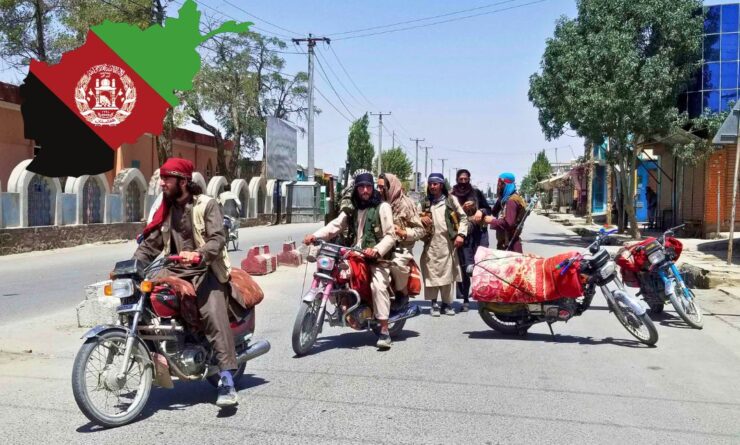
CPI Score: 24
Afghanistan, while often associated with prolonged conflict, is a nation abundant in natural resources. It is particularly known for its fruit produce, including grapes, pomegranates, and melons.
The persistent conflict has taken a toll on Afghanistan’s economy. As a result, international aid accounts for approximately 90% of the country’s economic activity. However, a significant portion of this aid is believed to be illicitly siphoned off, often packed into suitcases and transported out of Kabul to places like Dubai.
24. Zimbabwe
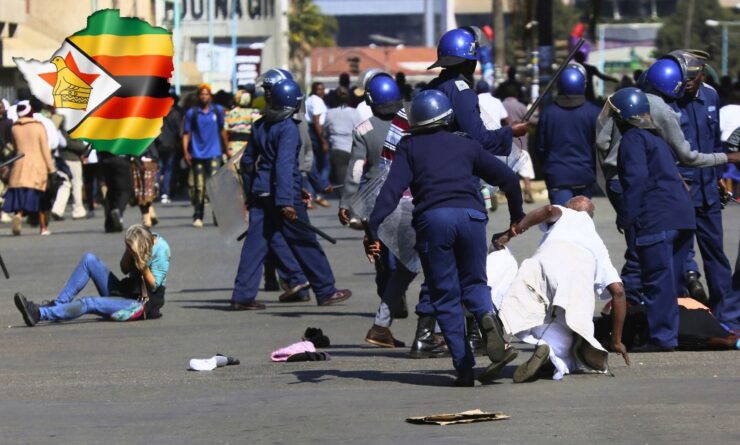
CPI Score: 23
Located in southeastern Africa, Zimbabwe is a country celebrated for its breathtaking natural wonders. It houses the iconic Victoria Falls, one of Africa’s most frequented landmarks. Additionally, the ruins of Great Zimbabwe stand testament to a medieval city that once flourished through cattle herding, gold mining, and trade via the Sofala Swahili Port.
Yet, the nation’s socio-economic fabric has been strained due to prolonged authoritarian governance under former President Robert Mugabe and the debilitating sanctions imposed by the United States and its allies. This has contributed to a migration crisis spanning Southern Africa.
The exploitation of Zimbabwe’s rich resources is often facilitated by government officials who resort to patronage and cronyism. Bribery, especially involving the police, has become an all-too-common occurrence.
23. Myanmar

CPI Score: 23
Myanmar, previously known as Burma, is a Southeast Asian gem renowned for its rich cultural tapestry, with over 100 distinct ethnic groups. Predominantly Buddhist, the country also showcases remnants of British colonial architecture in its major urban centers.
The roots of corruption in Myanmar can be traced back to the military’s authoritarian reign. In 2015, the nation witnessed its first democratic election after half a century, with political icon Aung San Suu Kyi, a Nobel Peace Prize recipient, securing a resounding victory.
However, this democratic transition was short-lived. In February 2021, a faction of the military orchestrated a coup, a moment inadvertently captured on video by a fitness instructor during her workout session.
22. Iraq

CPI Score: 23
While Iraq is often recognized as a country devastated by war, especially post the 2003 U.S. invasion, it’s essential to remember its rich history as the cradle of ancient Mesopotamia and its vibrant cultural contributions through poets, sculptors, and artists.
The present scenario in Iraq remains complex. Even though the U.S. mission formally concluded in 2021, a contingent of U.S. military personnel remains on the ground in a peacekeeping capacity. Rampant corruption across both private and public sectors has stymied potential foreign investments.
The persistent political and humanitarian challenges in Iraq have led to a void in effective governance. This has allowed public officials to engage in corrupt practices, such as accepting bribes, without facing consequences. Due to the heightened risks of violence and kidnappings, travel to Iraq is generally discouraged for U.S. citizens.
21. Honduras

CPI Score: 23
Honduras, located in Central America, is another nation grappling with the challenges of corruption. Rich in both hard and soft commodities, Honduras is home to a variety of minerals as well as tropical fruits and sugar cane.
The corruption landscape in Honduras is extensive. Syndicates operating on patronage and clientelism dominate the economy, deterring potential investors. When you factor in issues like bribery and drug trafficking, the result is a deep-seated distrust in governmental institutions by the populace, a mounting security dilemma, and an escalating migrant crisis.
20. Azerbaijan

CPI Score: 23
Nestled at the crossroads of Eastern Europe and Western Asia, Azerbaijan is a mesmerizing blend of the old and the new. In its capital, Baku, one can witness a harmonious coexistence of futuristic skyscrapers and historic edifices. However, the country’s prevalent business compliance risks and political corruption act as significant barriers to foreign investments and tourism.
The oil sector in Azerbaijan is particularly tainted by corruption, with patronage being the primary culprit. Although there exists an anti-corruption framework in the country, a feeble judiciary system enables corrupt officials and law enforcement to operate without fear of repercussions. Extortion and bribery are, unfortunately, all too common in Azerbaijan.
19. Sudan

CPI Score: 22
Although it is one of the most dangerous countries in the world, Sudan is a country rich in cultural heritage and boasts numerous tourist attractions. Interestingly, it has more pyramids than its neighbor, Egypt. Formerly the largest nation in Africa, Sudan is endowed with a wealth of mineral resources, including gold, iron ore, and other essential metals.
Despite its abundant resources, a significant portion of the Sudanese population remains deprived of the nation’s prosperity. Widespread cronyism and patronage have resulted in government officials holding direct or indirect stakes in numerous businesses, leading to an imbalanced economy.
The absence of transparency further aggravates the situation, with many civil servants demanding bribes from citizens and businesses for services that should be rightfully accessible as per the law.
18. Eritrea
CPI Score: 22
Located in the Horn of Africa, Eritrea is a small nation but stands out as one of the continent’s most militarized countries. Over 20% of its population is enlisted in the military, leading to an inflated defense workforce that strains the national budget.
In Eritrea, patronage and cronyism are rampant forms of corruption. Many individuals seeking public or judicial services often encounter demands for “gifts” or bribes.
The nation’s top military officials and generals wield significant power over the populace, and they are frequently implicated in various corrupt and illegal activities. The police force is not exempt from these corrupt practices either. Officers are known to misuse their authority, securing the release of friends, family, and anyone willing to offer a “gift” from incarceration.
17. Guinea Bissau
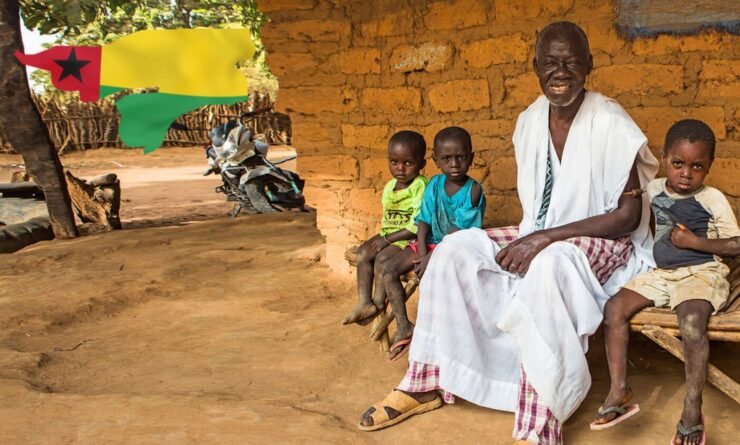
CPI Score: 21
Despite being one of Africa’s smaller nations and one of the hottest countries by temperature, Guinea Bissau holds a prominent position among the continent’s most corrupt countries. With its verdant national parks and varied wildlife, this West African country unfortunately also has a reputation for widespread corruption within its security apparatus.
Poor governance and a lack of accountability have severely hampered the judicial system, making it challenging to probe and bring criminals to justice. In Guinea Bissau, corruption isn’t just a top-tier issue; it’s pervasive at all levels. Many residents have reported being solicited for bribes by public officials on multiple occasions.
16. Republic of the Congo
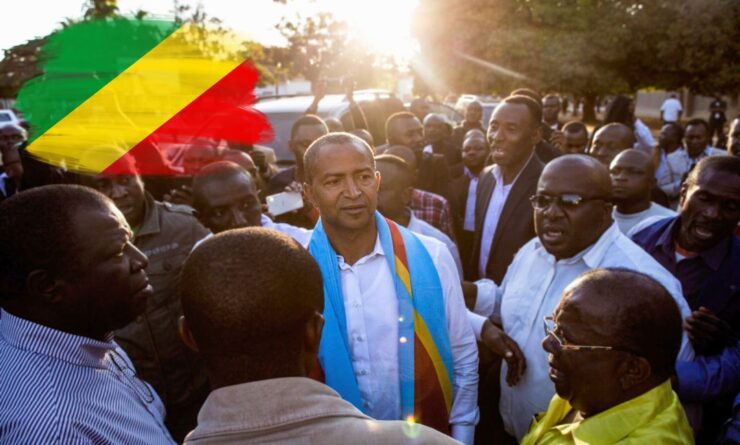
CPI Score: 21
Distinct from the DRC, the Republic of the Congo, often referred to as Congo-Brazzaville, is renowned for housing the world’s second-largest rainforest and being home to the notable Pygmy Tribe. This central African country is also endowed with a wealth of mineral resources, including significant deposits of cobalt and copper.
The potential for tourism in Congo is vast, given its rich biodiversity that includes over 400 mammal species residing within its rainforests. However, corruption stands as a major obstacle to the growth of its tourism sector. The President’s firm control over the nation paves the way for widespread patronage and a judiciary that often lacks impartiality.
15. Democratic Republic of the Congo
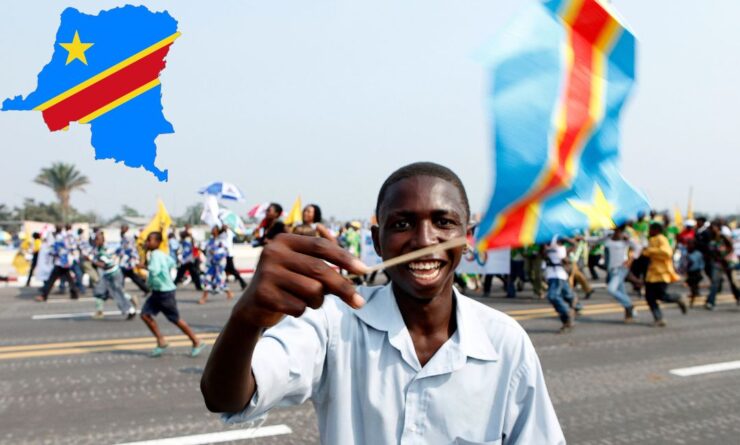
CPI Score: 20
The Democratic Republic of the Congo (DRC) is a treasure trove of mineral wealth, boasting reserves of gold, diamonds, cobalt, tin, copper, and coltan. Yet, despite its rich resources, the DRC finds itself among the world’s five most impoverished nations.
Corruption is deeply entrenched in the DRC, affecting every tier of government and all economic sectors. Practices like clientelism, patronage, and rent-seeking have eroded fair competition, making the country less appealing for foreign investments.
14. Turkmenistan
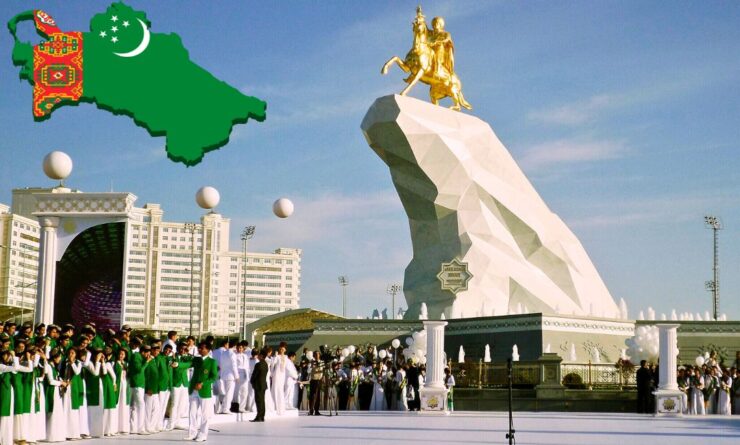
CPI Score: 19
Located in central Asia, Turkmenistan is a landlocked nation renowned for its age-old archaeological treasures, notably in places like Nisa and Merv. These sites, being pivotal stops on the historic Silk Roads, offer immense tourism opportunities.
Yet, the shadow of corruption looms large over Turkmenistan. Malpractices in government procurement and the allocation of licenses have persisted for years. Adding to this, the president’s close relatives and inner circle hold influential roles across various sectors, including politics, education, and commerce.
13. Nicaragua
CPI Score: 19
While Nicaragua is celebrated for its stunning lakes and volcanoes, it remains overshadowed in the tourist circuit. Beyond its natural beauty, the country has garnered attention for its alleged lack of political liberties and transparency concerning its state finances.
Corruption in Nicaragua is deeply ingrained. The political reins are firmly held by two figures: President Daniel Ortega and his spouse, Vice President Rosario Murillo. Their stronghold on power, characterized by cronyism and nepotism, has had detrimental impacts on the electoral process and the overall respect for human rights in the country.
12. Comoros
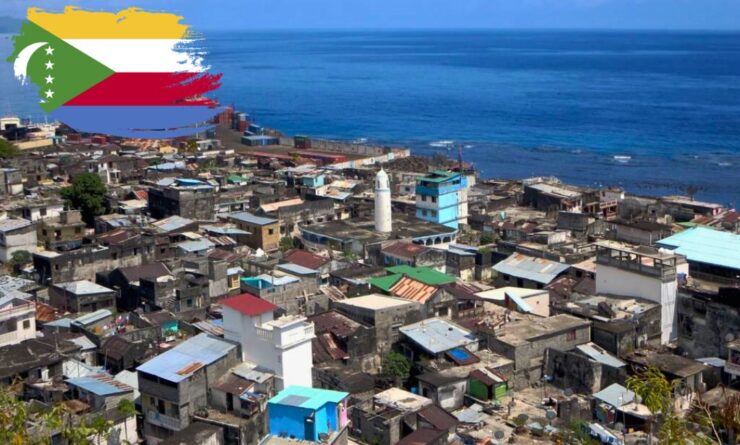
CPI Score: 19
Comoros, a lesser-known tourist destination, is an archipelago situated along the Mozambique channel. It offers pristine beaches, lush cliffs, and picturesque colonial coastal towns. However, beneath its beauty lies a significant challenge: the country’s underdeveloped infrastructure and systems have led to diminished oversight and control over corruption.
Corruption is pervasive in Comoros, affecting various sectors from the judiciary to civil service and security forces. It’s not uncommon for residents to resort to bribes to sidestep regulations, secure fabricated police reports, or prevent arrests.
11. Chad

CPI Score: 19
Chad, a landlocked nation in Africa, boasts abundant natural resources like oil, gold, and uranium. However, the country is marred by rampant corruption. Its judicial system, which operates with a semblance of independence, is frequently swayed by governmental influences, and the police often engage in heavy-handed tactics.
What’s more concerning is that corruption has become a normalized aspect of life in Chad. Both locals and tourists commonly encounter demands for bribes, especially at checkpoints manned by police and other state officials. Despite the significant revenue generated by an oil pipeline connecting Chad to its neighbor, Cameroon, the country remains among the world’s poorest, highlighting the deep-seated corruption issues.
10. Libya

CPI Score: 17
Libya has been profoundly affected by the aftermath of the Arab Spring, which began in 2011. The ousting of its long-time leader, Muammar Gaddafi, plunged the nation into a state of civil discord, with multiple factions vying for control.
This chaos has severely undermined Libya’s political structure, creating an environment where corruption thrives unchecked. The lack of robust mechanisms to monitor and combat corruption, combined with the involvement of political entities in corrupt practices, positions Libya as one of the world’s most corrupt nations.
9. North Korea

CPI Score: 17
Due to its stringent dictatorial and totalitarian governance, the external world has limited insight into North Korea. This opacity, especially concerning food security and human rights, has paved the way for corruption to flourish unchecked.
While the nation’s leader, Kim Jong Un, has publicly committed to tackling corruption with an iron fist, the reality is that corrupt practices have been deeply rooted in North Korean society since the 1990s.
A report by Trace International positioned North Korea at the very bottom among 194 nations. The country received notably high-risk scores in four critical areas, including the capacity of civil society oversight and the anticipated frequency of bribes from businesses to government officials.
8. Haiti
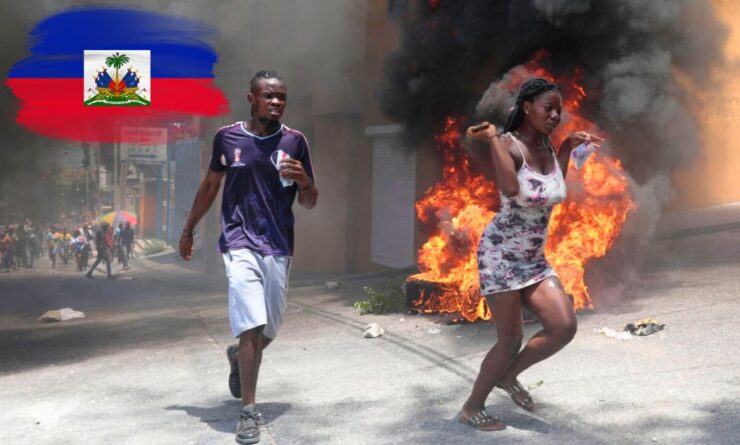
CPI Score: 17
Since the catastrophic earthquake in 2010, Haiti has been grappling with a profound social crisis. The nation is yet to bounce back from the economic and structural wreckage inflicted by the calamity.
Starting from 2011, corruption has severely drained the state’s financial resources. Organized and armed factions have broadened their spheres of influence, further destabilizing the political landscape. This escalating instability reached a climax with the assassination of Former President Jovenel Moïse in July 2021.
7. Equatorial Guinea
CPI Score: 17
The root of corruption in Equatorial Guinea can be traced back to its authoritarian governance. The president, along with a select group of elites, indulges in opulence, primarily funded by the nation’s oil wealth. This misallocation of resources, combined with a lack of legal oversight, has given rise to widespread corruption, random arrests, torture, and biased trials.
In a notable 2021 case, a French court convicted Teodoro Obiang Mangue, the Vice President of Equatorial Guinea and the President’s son, on charges of embezzlement. His ostentatious display of affluence on social media platforms was particularly glaring. Among his extravagant possessions were a Rolls-Royce Phantom, two Bentleys, a Maybach, a Porsche, a Ferrari, a Maserati, and a pair of Bugattis.
6. Burundi

CPI Score: 17
Even with numerous initiatives aimed at promoting transparency and ethical governance, Burundi continues to grapple with pervasive corruption. The issue is deeply entrenched in the system, with illicit practices such as bribery and favoritism permeating from top-tier officials down to grassroots public servants.
The neo-patrimonial policies of Burundi’s ruling party have relegated the nation to lower echelons in governance rankings. This has deterred foreign investments and fostered widespread societal discontent. The persistent inability to address corruption in both political and societal arenas ensures Burundi’s prominent position on this list of corrupt countries.
5. Yemen
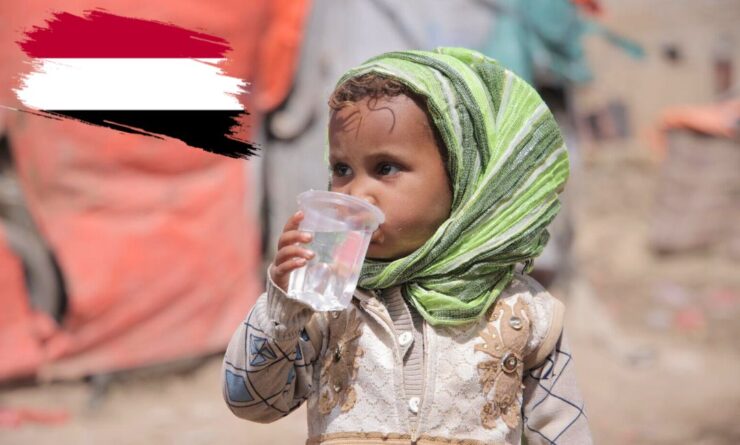
CPI Score: 16
Yemen’s prolonged civil conflict, often perceived as a proxy battle between Saudi Arabia and Iran, has wreaked havoc on the nation. Regardless of the geopolitical intricacies, the undeniable fact remains that the war has precipitated a dire humanitarian crisis, with children bearing the brunt. Over half a million children below the age of five are grappling with acute malnutrition, and tragically, a young child succumbs every 10 minutes due to preventable causes.
The chaos of war has obliterated governmental accountability and any semblance of a control system. Yemen is now dominated by patronage networks that manage civil matters, resulting in a surge of “ghost workers” that drain the national budget. These networks also control governmental contracts, often exploiting local businesses with unwarranted fines.
4. Venezuela
CPI Score: 14
With a staggering reserve of over 300 billion barrels of oil, Venezuela’s abundant natural resources have unfortunately been a catalyst for political turmoil, socio-economic challenges, and widespread corruption. The country’s issues, such as food shortages, overcrowding, and crumbling infrastructure, have only intensified the crisis.
Allegations have been made against government officials and their kin, accusing them of engaging in illegal activities like drug trafficking. Some claim that a portion of these illicit funds even backed President Maduro’s 2013 election campaign.
3. Syria

CPI Score: 13
The Syrian Civil War emerged as a part of the broader wave of the Arab Spring movements across the Middle East and North Africa. This conflict, primarily between the Syrian military and various insurgent groups, has seen a massive inflow of funds and weaponry to different factions, along with aid from global institutions.
Unfortunately, much of this aid has been misappropriated due to corrupt practices. Bribery and extortion remain rampant forms of corruption in Syria.
2. South Sudan

CPI Score: 13
Even though South Sudan holds the title of the world’s newest nation, its leaders have been implicated in corruption levels comparable to the most corrupt nations globally. This nation, abundant in oil reserves, was declared a republic on July 9, 2011. However, it quickly plunged into a civil war by December 2013.
The prevailing conditions have been fertile ground for corruption among government officials. It’s reported that leaders in Sudan misappropriated more than $74 million in just two years. The country’s president, Salva Kiir, confessed that since 2012, over $4 billion has been siphoned from the national treasury through various corrupt practices, including embezzlement and patronage.
1. Somalia

CPI Score: 12
Plagued by continuous conflict, instability, and the absence of a unified government, Somalia has consistently ranked among the top three most corrupt nations for the past couple of years. Coupled with a notorious reputation for piracy, the country faces a severe crisis.
The root of many socio-economic challenges in Somalia is corruption, impacting both residents and visitors. A report by the United Nations revealed that over 70% of the country’s governmental resources had been misappropriated for personal benefits.
FAQ
What are the least corrupt countries in the world 2024?
Countries like Denmark, Finland, and New Zealand consistently ranked as some of the least corrupt countries according to the Transparency International Corruption Index. For the most recent 2024 rankings, you might want to refer to the latest report by Transparency International.
What makes a country corrupt?
Corruption is described as the abuse of assigned power or authority for illicit personal gain. Factors contributing to corruption include civil conflict, low security, poor governance, weak institutions, and lack of transparency and accountability.
Which country is highly corrupt?
Countries like Somalia, South Sudan, and Syria have historically ranked high on the list of most corrupt countries according to the Transparency International Corruption Index.
What are 4 types of corruption?
The four common types of corruption are:
-
- Petty Corruption: Small-scale corruption usually involving bribes.
- Grand Corruption: Large-scale corruption involving senior officials.
- Systemic Corruption: When corruption becomes an integral part of the economic, social, and political systems.
- Political Corruption: Manipulation of policies, institutions, and rules by politicians and government officials for their benefit.
What is the most corrupt nation in Europe?
The level of corruption varies across Europe, but historically, countries like Bulgaria and Romania have faced challenges with corruption. However, it’s essential to refer to the latest Transparency International Corruption Index for the most recent rankings.
Why is Denmark’s corruption so low?
Denmark’s low corruption levels can be attributed to its strong institutions, transparent governance, high levels of press freedom, and a robust judicial system that holds wrongdoers accountable. The culture of trust and the active participation of civil society also play a significant role.
Final Words
Corruption is a multifaceted issue that affects nations across the globe, irrespective of their economic status or geographical location. While some countries have managed to curtail its spread through robust institutions and transparent governance, others continue to grapple with its devastating consequences.
The Transparency International Corruption Index serves as a vital tool in highlighting these discrepancies, urging nations to take proactive measures. As global citizens, it’s crucial to remain informed and advocate for transparency, accountability, and good governance in our respective countries.

